|
by Naomi Woo
In a tale fitting for 2020, Ashley Au and I met in person for the first time at a protest during a global pandemic. A bit of background: I moved to Winnipeg a year ago, in September 2019, to start working as Assistant Conductor of the Winnipeg Symphony Orchestra. I knew very few things about Winnipeg aside from the big institutions like the WSO, Winnipeg Art Gallery, Royal Winnipeg Ballet. However, Winnipeg’s innovative and experimental new music festival, Cluster, had managed to find me halfway across the world while I was living in the UK (and my face had even found its way to Cluster in 2016). The incredible range of their programming has always captivated me, and of course I thought of Tangram when in 2019 they programmed Remy Siu’s Foxconn Frequency no. 3, for three visibly Chinese performers.
When Cluster announced a change in leadership this year, I was excited to learn of Ashley for the first time when she was announced as the new director. Her leadership transition came just as the scale of the COVID-19 pandemic was becoming apparent worldwide, and so she was unexpectedly thrust into the spotlight as the festival pivoted rapidly from a week-long series of events planned for the end of March to a digital-only offering that aired from May 1-June 1. This was one of the most impressive pivots from live to digital that I saw, especially in the early days of the pandemic. The digital version of the festival took place on a website which hosted works of sound and performance and art. The curators openly acknowledged the potential that this digital transition could have on a greater commitment to accessibility, and used the medium of the website playfully and provocatively. It was nothing like a live new music festival, nor did it strive to be. One of the works that has stuck with me is in the months since is Juro Kim Feliz’s A Study in Exile no. 4: Paagos (Drift), an abstract, layered soundscape that explores themes of migration, identity, and borders and “[probed] into the paradoxes of artist narratives under global migration.” In its digital presentation, listeners toggle between different tracks. The control this afforded the spectator was tantalisingly tactile. Yet instead of affecting proximity with the speakers, the auditory effect further fragmented the stories and sounds of exile and distance on the tracks. A timely reflection on broken promises of technology in a time of social isolation perhaps? Although at some point I emailed Ashley to introduce myself and congratulate her on the festival, our first face-to-face encountered happened by chance on the lawn of the Manitoba Legislature in mid-June, where we were both attending a rally to honour, remember, and demand justice for a 16-year-old Indigenous girl, Eishia Hudson, who was shot and killed by police in Winnipeg earlier this year. Since then, we’ve gotten to know each other a bit more and, and a few months later, we found ourselves at the same spot, this time alongside a group of others in the Asian community in Winnipeg allying ourselves in solidarity against anti-Black and anti-Indigenous racism. (Hudson's family is still waiting for answers, as the city's police force has refused to disclose the use-of-force report related to the case, and an investigation is ongoing). Ashley’s encyclopaedic knowledge of music, impressive list of accomplishments, and ubiquity within the music scene here in Winnipeg seem intimidating at first, but in combination with her incredible community advocacy and education work, and genuine love of what she does: it’s just plain admirable. I was so grateful that Ashley was willing to answer a few questions for the Tangram Puzzle Pieces blog, and delve into some of the topics at the heart of what we do as a collective of transnational Chinese artists.
In Tangram's Puzzle Pieces blog, we’re interviewing transnational Chinese music-makers from around the world and exploring Chinese identity and music. Can you tell me more about your background and what it means to you?
Ashley: My family, on both sides, are from the Guangdong Province and I sit between being 1st and 2nd generation Canadian. I am a lot closer to my mother's side of the family, which is why I often identify more with being a 1st Generation Canadian/Third Culture Kid. On my dad's side of the family, my grandfather immigrated here from Tai Ping, paid his Head Tax and settled in Corner Brook, NL. He opened a restaurant and found success in Canada. At one point, he travelled back to China and was married to my grandmother, and they travelled back to Newfoundland and started a family. They relocated to Atikokan, ON and then eventually to Winnipeg, where my parents met. My mother immigrated to Winnipeg with her parents and four siblings in the 80s. They initially lived downtown and she, her parents and younger sister immediately joined the workforce while her younger siblings entered the Canadian public school system. Prior to migrating here, they were farmers in rural Guangdong. I was the first born and I like to joke that I've been trying to live up to the expectations and responsibilities of that role my entire life. I happened to be born in 1988, which is an auspicious year for folks who follow the Lunar calendar because it is the Year of the Dragon. For folks that are quite traditional, I would have ideally been born a boy. But, lucky for me (perhaps this is that Dragon luck folks keep talking about) my family wasn't so rigid in their attachment to certain aspects of the culture. An androgynous queer daughter is close enough, right? My first language is Taishanese, which is one of the most commonly heard dialects of Chinese in North Americas oldest Chinatowns, due to the first few waves of migration being from the Guangdong province. Over the years, my conversational skills in Taishanese have waned. This has been a source of contention in my family and a major source of anxiety for me, as this language doesn't have a written tradition and is aurally passed on. I often find myself researching phrases and mumbling to myself in Taishanese at home in an attempt to keep it up. I hope to travel back to China with my mom and grandmother one day, so that I can immerse myself in the culture and shake off all the rust. With the rise of Mandarin becoming the standardized dialect in China, I worry that completely losing my native tongue will contribute to the loss of language diversity in China. I am very proud of my heritage. It feels like I'm a small part of a very long, complicated story… I think that living between two cultural realities has given me the unique privilege to examine myself and the world I live in through different lenses. “I am very proud of my heritage. It feels like I'm a small part of a very long, complicated story… I think that living between two cultural realities has given me the unique privilege to examine myself and the world I live in through different lenses.”
What role does music play in your relationship to your family and culture?
Ashley: My greatest connections to my culture are through family stories, history, food, as well as music. I have very vivid memories of singing little songs and rhymes with my maternal grandmother as a child. My mom and late maternal grandfather both love Cantonese Opera, so I find myself pulling up recordings to listen to at home and when I am visiting my parents. My grandfather had this booming baritone voice that was stern, commanding and kind of terrifying as a kid. I'll often watch Canto Opera productions with my mom (or listen to her sing little excerpts as she goes about her day.) I spend a lot of time cooking and experimenting in the kitchen, specifically trying to recreate dishes I have with my family. Some of my most cherished memories are ones where I am hanging out in the kitchen with my mom and her mom, trying to replicate their dumpling folding techniques and getting roasted by my grandma for making the ugliest looking food. I am biding my time until I am the grandma that does the roasting. The folks in my parents' generation all listened to a lot of popular music, usually the stuff on the radio and on MuchMusic/MTV. My dad listened to a lot of classic rock, soul, pop and R&B from the 70s and 80s. There was always a lot of Queen, Bowie, Fleetwood Mac, Elton John, Earth Wind and Fire and Michael Jackson coming from his stereo. My mom really gravitated towards 90s and early 2000s pop music—Shania Twain, Enrique Iglesias, Celine Dion, etc. My brother listens to a lot of jazz and soul music—that DapTone Records sound and also jazz-influenced early 90s golden-era East Coast hip-hop.
It sounds like your family laid the groundwork for the diversity of your current musical practice! Tell me about what draws you to the music that you play and curate.
Ashley: I grew up listening to a lot of different styles of music. My paternal grandmother gave me a Sony Walkman for my 7th birthday, resulting in me staying up all night listening to any and all radio stations, which exposed me to a lot of music. To add to that, my dad is a bit of an audiophile and has always had a really nice stereo system, complete with tape decks, turntables, and loads of cassettes and vinyl. It was this collection that really started leading me down the rabbit hole with the variety of music that was out there. I spent a lot of time pouring over the album art, CD jackets and liner notes to learn about the players on the albums as well as the instrumentation and producers. As soon as my family got its first computer, the liner note research increased ten-fold and I began to map out my own understanding of the historical lineages of different genres, primarily in Western popular music styles. Eventually, I started playing bass while I was in high school and luckily it was an instrument that is necessary, in some form or another, in virtually every genre of music. Since I had developed a fairly eclectic taste in music early on, I found myself just saying yes more often than not, when asked to play with various bands. At the same time, I started to really study jazz music and specifically jazz theory, which I think is akin to a Rosetta Stone for the language of popular music, making it much easier to learn and pick up on the stylistic differences and nuance in different genres of music. When I went to Brandon University, I was exposed to the world of Western art music, and became particularly fascinated with the world of New Music, which was nothing like what I had ever heard up until that point. The music I am drawn to playing and curating pulls at opposite ends of the spectrum, on one end the tradition and history of a particular style of music is being explored and contextualized as a living, breathing art form in the present day and on the other end, there is music that is much more experimental—an intentional departure or reaction to the status quo, specifically to music that challenges needlessly staunch and often self-aggrandizing conventions.
Has your identity also affected how others perceive you as a musician? I don't know that many Chinese jazz musicians, for example!
Ashley: As a racialized person, I would often have folks assume I was a classical pianist or violin major when I was doing my undergrad at Brandon University. I've even had fellow students assume I was an international student for months, until they had heard me speak. This has become less common now that I've been settled in Winnipeg and have kind of established myself in the community. You know, I'm not aware of too many Chinese jazz musicians in Canada or the United States. One Chinese jazz musician I'm a really big fan of is Allison Au, who is a really great horn player based in Toronto. We are not related, unfortunately.
Changing gears a bit, I want to ask about some of your specific projects. As the new-minted director of Cluster, you suddenly had to radically reorient the festival online just as things were being shut down because of COVID-19 here in Winnipeg. What was that process like for you? Can you share some of your dreams/visions/goals for Cluster in the years to come?
Ashley: While the process was quite intense, I am really happy to have had the opportunity to work with the outgoing co-directorate in relaunching the Cluster as a digital festival. That kind of hands-on, side-by-side mentorship is invaluable. As far as visions for future iterations of Cluster, I am most excited to see the breadth of work that will come out of this strange time of isolation. I caught a glimpse of it with the digital festival call for submissions, but it will be interesting to see how this new world we find ourselves will be reflected in the work that folks are making, especially now that we've been managing the uncertainty for a while. I really want to see Cluster continue to be a space where artists can feel supported in their risk taking and where audiences are game to experience challenging work. I am also hoping to include more digital programming in the future, even after the pandemic recedes and in-person events can happen safely. Something that became quite clear during the curatorial and administrative processes for this year's Digital Edition was the general inaccessibility of in-person events to certain folks. By presenting work in the digital sphere, we can ensure that everyone who would like to check out Cluster is able to in some form or another.
You grew up in Winnipeg and still live here, and are involved in so many different aspects of music-making in the community. Can you tell me about the role of music in this specific city? What do you think is the role of music in a community in general? How did growing up here influence the kind of music that you listen to and make?
Ashley: Winnipeg is absolutely a music city, with a particularly strong roots/folk/Americana scene. I've heard some folks jokingly refer to this city as the Nashville of the North and I really think it fits the bill. To many residents, Winnipeg has always been a blue-collar, underdog city and this absolutely reflected in the music scene here. I find that folks across genres really use music as a form of community building. The local music community is quite a diverse archipelago of scenes, often divided by genre. What I find boggling is that these music communities operate like little islands, only connected by a handful of key musicians, festivals or venues. I've found myself traversing between the various musical communities in my work as a freelance bassist and it's amazing to see all of the talented musicians the city has to offer. There is a lot of camaraderie and mutual support within each of Winnipeg's little music scenes. It's humble and it doesn't suffer from the hyper-competitiveness like other larger cultural centres do. I honestly think a lot of it has to do with the winters here. Lots of folks use the winter as an incubation period for new work. Everyone is stuck in their little icebox, waiting out the weeks of -50c. When spring hits, people are usually really excited to get out of the house and reveal all the stuff they've been working on. Everyone ends up celebrating each others' artistry and each others' successes with a kind of sincerity reserved for hometown heros. Both the late Gerry Atwell (local musician, bandleader, and champion of Winnipeg Arts & Culture) and Mitch Podolok (founder of the Winnipeg Folk Festival, West End Cultural Centre, and Home Routes) are great examples of Winnipeggers who really fostered a culture of mentorship and mutual support within Winnipeg's music community. Growing up here exposed me to all sorts of music. While Winnipeg is quite small, there are a number of festivals and venues that bring a large swathe of big acts from across genres. The city is also home to a symphony, a ballet and opera company as well as a number of smaller artist-run-centres and independent venues that act as incubators for new and exciting work.
You have an incredibly wide palette and breadth of musical knowledge. So: what’s something you would recommend I listen to right now and why?
Ashley: Lately, I've been listening to the new Tom Misch & Yussef Dayes album. The whole record slaps. These two musicians make really good collaborators. Tom Misch has this kind of neosoul/nu-disco/R&B sound in his past projects, which nicely compliments Yussef Dayes, who is a jazz drummer/producer that combines jazz-funk sensibilities with elements of London hip-hop & drum and bass. I'm also a big fan of Kota the Friend, a Brooklyn-based hip-hop artist/producer. Their last three records have been in constant rotation. I'm drawn to the beat production and his lyricism. I find myself repeating certain snippets and phrases from his bars in my head. I think that's what I love most about his music, the little turns of phrases that are so succinct and poignant. He writes lyrics that resonate. Thanks so much for this wonderful conversation, Ashley!
Learn more about Ashley at www.ashleyau.com, and go listen to the Super Duty Tough Work's Polaris-nominated album, Studies in Grey. A Tangram-curated playlist with some of the tracks that Ashley mentioned can be found here:
Please note that this interview has been slightly edited for concision and clarity.
0 Comments
by Daniel ShaoEarlier, I spoke with Alex & Reylon, founders of Tangram, about creating a state of questioning with our project and opening up spaces between the East and West. In this second conversation, I began by asking about who are audiences are: are we imagining a Chinese or Western audience, or neither? Alex: It is less about where are audiences are from and more about their engagement with our mission: catalysing transnational imagination and celebrating the vitality of Chinese cultures. The idea of opening up a space you mention means we want to communicate new ideas of what Chinese identities and cultures encompass. We want our audiences to undertake a journey with us no matter where they start. This also applies to who we work with. We want to work with lots of people from different backgrounds and engage them in our mission as much as our audiences. This includes working with non-Chinese players and composers who may not have much experience in musical cross-cultural exchange to this extent but who are interested and genuinely excited by what we do and how we do it. Our upcoming commissions (to be announced soon!) reflect this and we can’t wait to see how they interact with and develop our work in creative ways. To me, that makes sense in terms of getting our message to as wide an audience as possible, and avoiding any sense of alienation. I’ve found that when discussing new political angles to do with race and culture, people respond better to a positive and approachable tone. That being said, does drafting people in to our message of positivity make us activists? Do we have to draw the line and say we are not an activist group, or is our explicitly Chinese music-making inherently political, and can our practice play a part in the cultivation of anti-racism? Reylon: The anti-racist drive is part of the DNA of what we do, but I hesitate to call it activism because there are many people on the ground doing hard work like getting legislation passed, having difficult conversations etc. I don’t want us to sound like we’re claiming to do that. But, we are using our medium in a special way where we’re embracing the social aspects, getting the audience to ask questions, and prompting reflection on what it means to be Chinese / British / American etc. We want to challenge what constitutes contemporary music, and get people to think beyond definitive categories. For me, if there’s one statement I want to advocate for through Tangram, it is that China and the West are not mutually exclusive, because this assumption is at the heart of a lot of geopolitical conflicts that we’re seeing, with the contest between China and the US as global superpowers. If that tension continues to grow unchecked, without genuine cultural exchange, without human-to-human communication channels, we are going to see very drastic consequences in terms of fraught public perceptions, trickling up into foreign policy decisions made by our leaders, which can lead to sustained antagonism. What I hope is that we can become a symbol for people of the truth that it is not as simple as us vs. them, and there is so much overlap. The lives of transnational Chinese people is a testament to the fact that there is a future that is much more peaceful, interconnected, and alive. So we definitely feel an idea of a utopian ‘call to imagination’, where we are trying to get people to think past destructive, racist, repetitive cultural narratives, that do have dire consequences, so we can imagine a more constructive future, that’s embedded in what we’re doing. In terms of anti-racism, a key point we want to emphasise is that music is an alternative language for communicating across cultural barriers, and we are leaning into that property of music. We said before in our mission statement that we are using the emotional languages of music to imagine alternative relationships between China and the West. It’s great that as an ensemble, we can do more than just make music; we think very critically about ourselves as artists, as well as the sources, effects, and potential resonances that our audiences might feel. This is maybe what sets us apart from other ensembles, who might be more concerned with just how they sound musically, aesthetically. We have been, and will continue to be, a socially engaged music movement. This got me thinking about the nature of apoliticism in music, particularly in light of recent public dialogues around race concerning the idea of existing with a supposedly apolitical status as a privilege, which some groups are not afforded the luxury of. Reylon’s phrase ‘call to imagination’ really gave me life and joy, offering vibrant possibilities of futurism, and a world where preconceived barriers are less present. That being said, we have to be aware of the barriers in the first place to challenge them at all.
Lastly, we discussed some of Tangram’s plans for the future! Alex and Reylon: We are excited to continue expanding our commissioning project and perform concerts at different venues in and around London and the UK, hopefully working towards a CD. We are also looking at developing our stage project Ye Xian into a more substantial piece, and have more exciting digital offerings coming up! We are also open to more commissions and collaborations with composers, or any artists who resonate with our mission. Please get in touch! By Daniel Shao 7 June 2020 So, for this very first post for our blog Puzzle Pieces, I had the chance to catch up with our co-directors Alex and Reylon, on Tangram’s beginnings and mission. Alex and Reylon met in 2017 in Boston through a mutual friend while Alex was on a choir tour, and as Reylon was coming to the UK to do a master’s at SOAS, they decided to stay in touch and collaborate in London in 2018. To me, the transnational nature of their meeting is already interesting, as that is also at the core of what Tangram promote as a movement. Both shared thoughts about what it could mean to exist and make music at the intersection of Chinese and Western culture. At this time, Reylon was making new friends before his big move to London, but also he and Alex were both on the cusp of a new phase in their own musical trajectories. The same month that they met, Reylon had been speaking to Wu Man, a virtuoso Pipa player from the Silk Road ensemble (who Reylon also plays with), about how the Yangqin could work in contemporary music. She said to him he should do new things with the Yangqin as there’s not enough new music for the instrument, and he sits in a unique position as someone trained in the Chinese tradition but also having grown up in Western institutions. Reylon remembers her tone was almost one of frustration, as if she were decrying the fact that the instrument had been held back from reaching its full potential for too long. From our time studying Music at Oxford, Alex and I glimpsed the Eurocentric focus of the UK’s curriculums, something which holds particularly true in composition courses. Against this background, in the words of Unsuk Chin talking about her concerto for Sheng, when using non-western material ‘the dangers of musical exoticism seem [very] great’. If an Asian composer living in the West directly uses musical stimuli from their own culture, they can easily be stereotyped as just ‘doing the whole Eastern thing’, which is regarded in the Western classical music mindset as somehow less rich than the likes of Boulezian modernism. It is true that by pointing this out we admit that we are victims of Eurocentrism and reductive narratives in some way, but both Alex and Reylon are keen to emphasise Tangram as an example of thriving being a form of resistance through the celebration of Chinese cultures. By creating new trajectories and seeking to disrupt colonial narratives, we aim to spread positivity and place new possibility onto the global image of the Chinese subject. Alex’s first piece stimulated by his heritage was ‘Vanishing Point’ for erhu and symphony orchestra, premiered by the Shanghai Philharmonic in 2016, with Sun Yaoqi as soloist under conductor Liang Zhang, and it was from this point on that he realised how fruitful it could be to explore transnational culture and identity, and to question the supposed dichotomy of his London home and parental background of Hong Kong. For Reylon, a core idea of Tangram as a movement is that the West and China are not mutually exclusive entities, or even just entities (static, bounded) for that matter. We as artists are a testament to the existence of cultural cross-pollination, and are living examples of the multiplicity and diversity of the Chinese diaspora, facts which we aim to showcase consistently. Reylon’s musical upbringing was very different to that of Alex and myself; he studied the Yangqin and Chinese traditional music in San Francisco. Yet even this ‘traditional’ education bore elements which questioned any idea of nationalist musical absolutism; he studied lots of contemporary Chinese music which was influenced by Western art music, for example the beautiful Spirit of the Yellow Earth. The development of Tangram helped him to stop thinking in the binary way of ‘East vs. West’.
Reylon: It’s more about opening up the liminal space that we already inhabit, and trying to discover and create from where we are rather trying to fit ourselves into the Western Music tradition or the Chinese Music tradition. By creating something new and authentically ours, we’re naturally synthesising all of our influences, and this is an elegant way to transcend these boundaries. Alex agrees: Alex: It’s not so much a case of categories, but maybe more about opening up new spaces. There’s significance in the way we frame it, as the East meets West thing is dead and stale. We’re not necessarily looking to even create a new form, it is exploratory and organic. The concept of China does not have to mean anything narrow or singular, it can be all about heterogeneity and plurality, and there being loads of different ways in which ‘Chineseness’ can manifest.” Especially in recent times, Chinese identity has often been flattened into a two-dimensional idea, which is then easier to stereotype in a negative way, affecting common perception i.e. #Chinavirus. But Reylon has also been counteracting this with a hashtag project of his own, #ChineseViralBlank on instagram, which aims to showcase the broad and diverse reality of Chinese people and artists. For him: Reylon: A big part of Tangram is challenging those stereotypes and creating a safe space where we can explore. Tangram is a safe space for all of these artists to be themselves and explore identities in our own way. We hope that each artist interprets our mission for themselves, exploring it through the prism of their own experience, embracing and accepting what they find. Self-acceptance is a wonderful part of the Tangram process, because we are embracing our whole selves as transnational Chinese individuals, not just asking people to categorise themselves into assimilated white Western creators or purely Chinese creators, we are embracing all of those aspects, which can be very freeing.” This concludes part 1 of the 'reflective interview' : stay tuned for part 2 in which we discuss how these ideas intersect with musical process, plans for the future, and more! Tangram stands in solidarity with the Black community around the world in protesting against racial injustice and police brutality. We are actively engaged in conversations about how we can combat anti-Black racism in our own communities and use our platform to better amplify and support our Black friends and family. Black lives matter.
We as transnational Asians would not be where we are, empowered to create and live the way we do, without the leadership of Black intellectuals, artists, and activists who have done the brave, dangerous work of revealing the violence of white supremacy. We acknowledge the privileges that we have as transnational Asians, and the extent to which we owe these to the Black community. The vision of the future we work toward as a new music collective—a future in which Chinese and Western cultures are no longer assumed to be mutually exclusive, in which geopolitical tensions give way to a culture of listening and human connection—would not, and will not, be possible without the movement for Black lives. They have created an invaluable impact by calling for justice in our systems, and creating a culture that reckons with the past. We feel the deepest gratitude and indebtedness for this legacy, and have a responsibility to do everything we can to honor and support that legacy through our work. |
Authors:A range of Tangram artists and collaborators. We aim to present interviews, reflections, and tidbits on existence in the global Chinese diaspora. Archives
August 2020
Categories
All
|
Proudly powered by Weebly

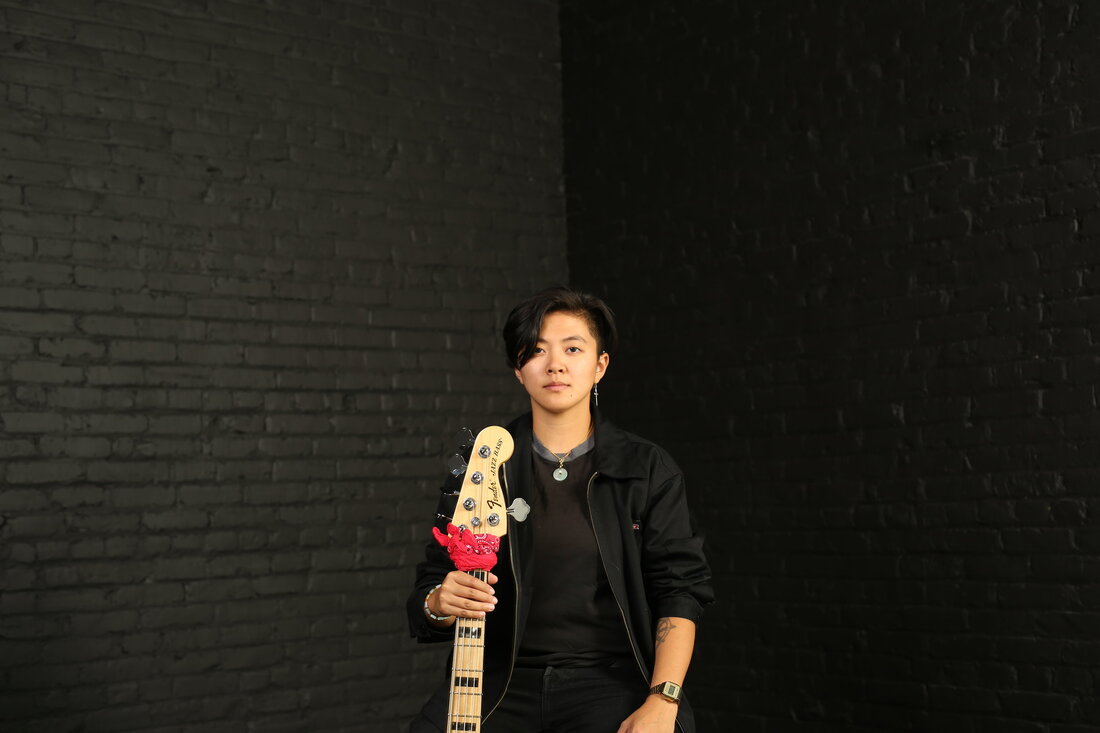
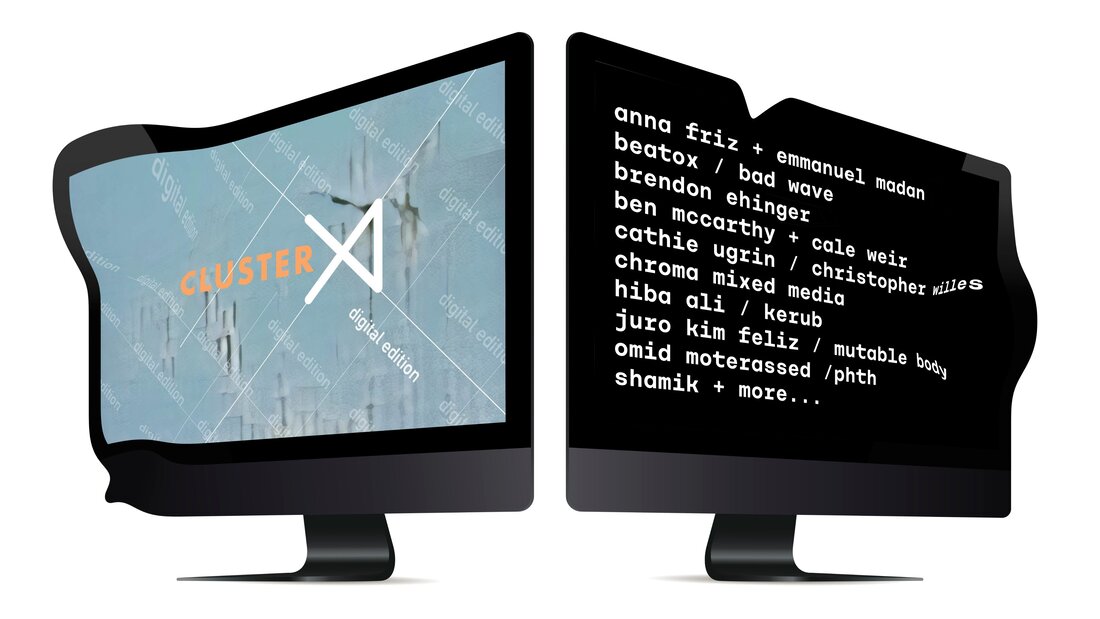
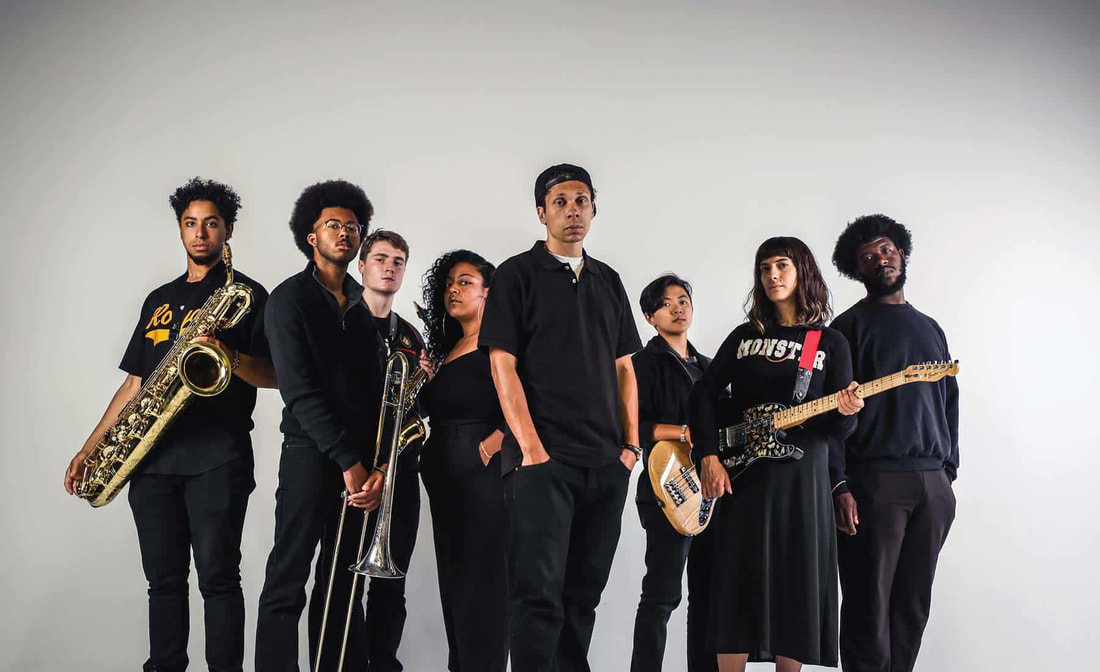
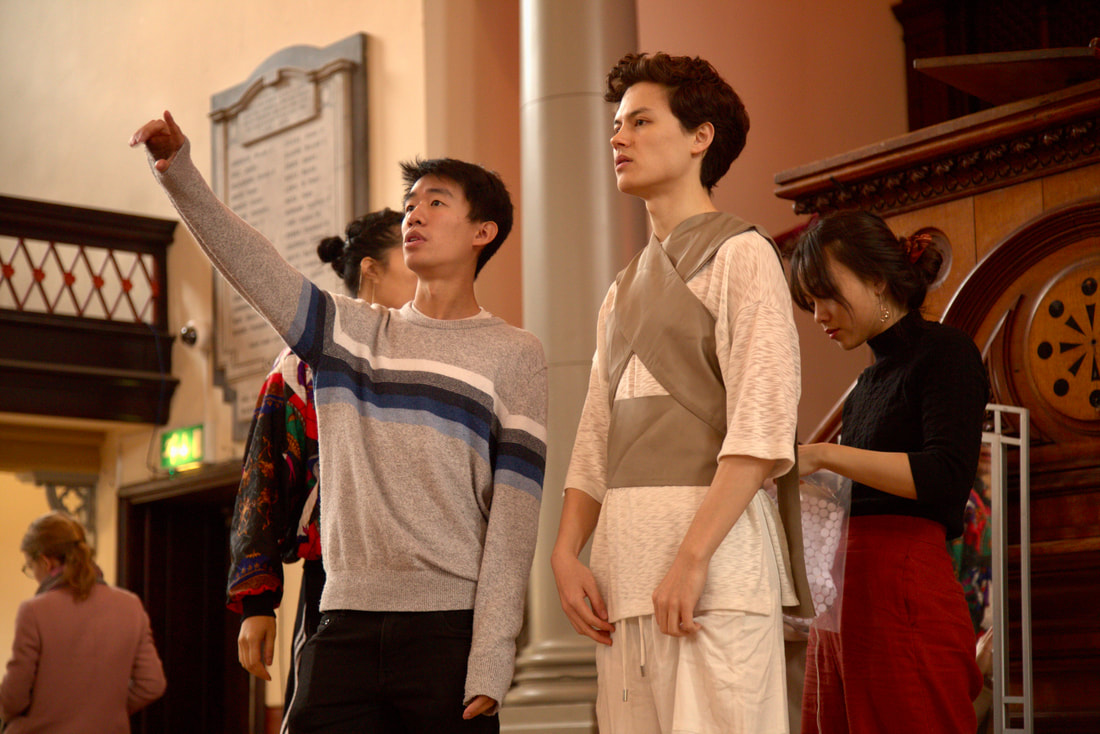
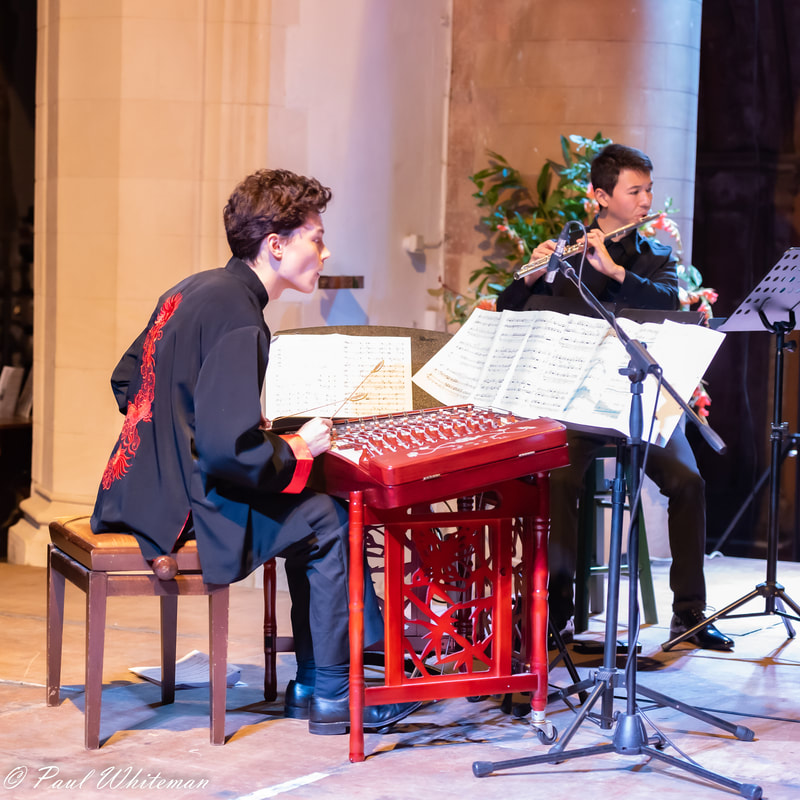
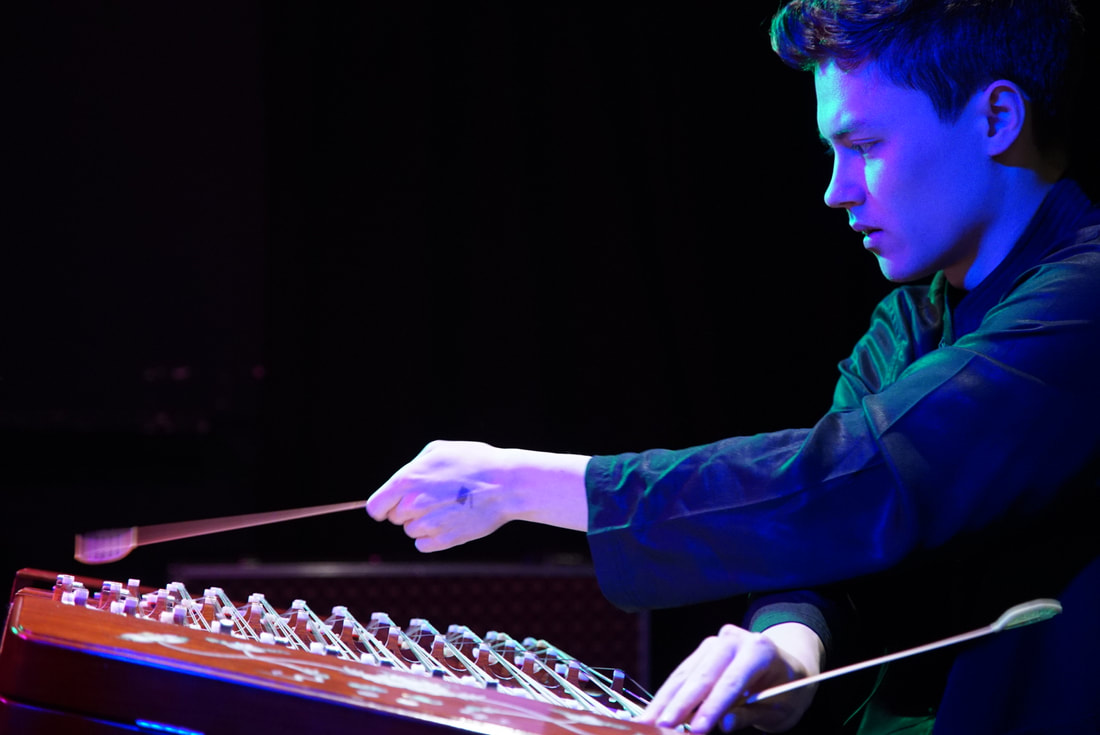
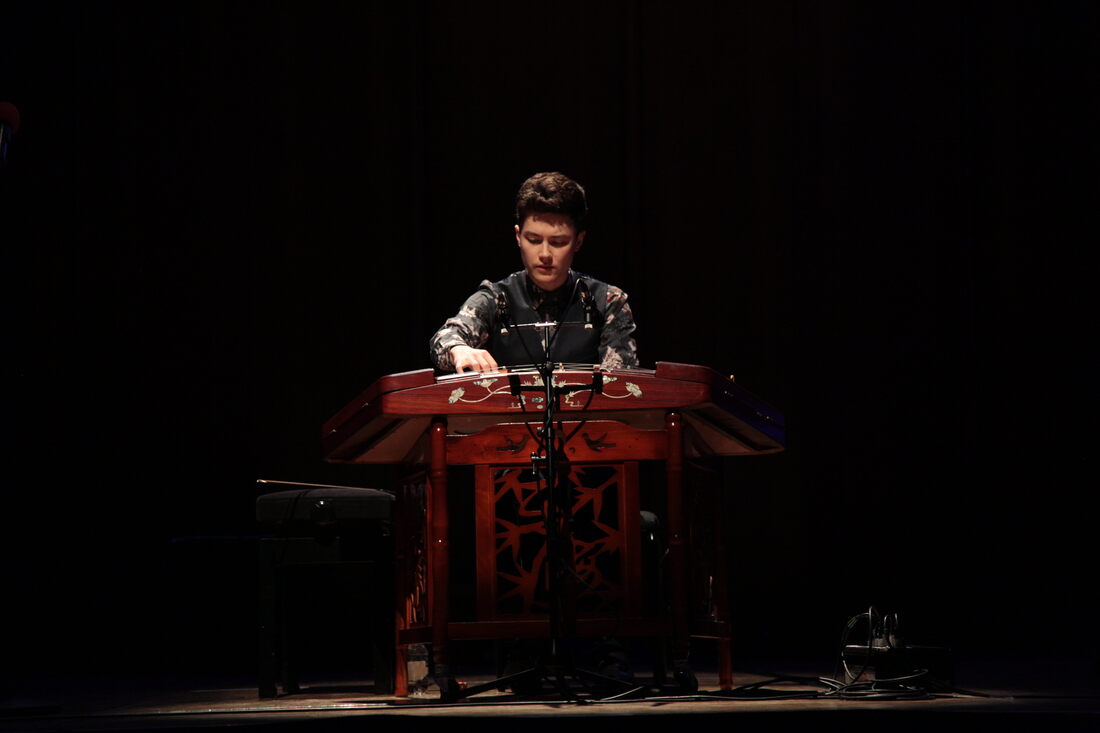
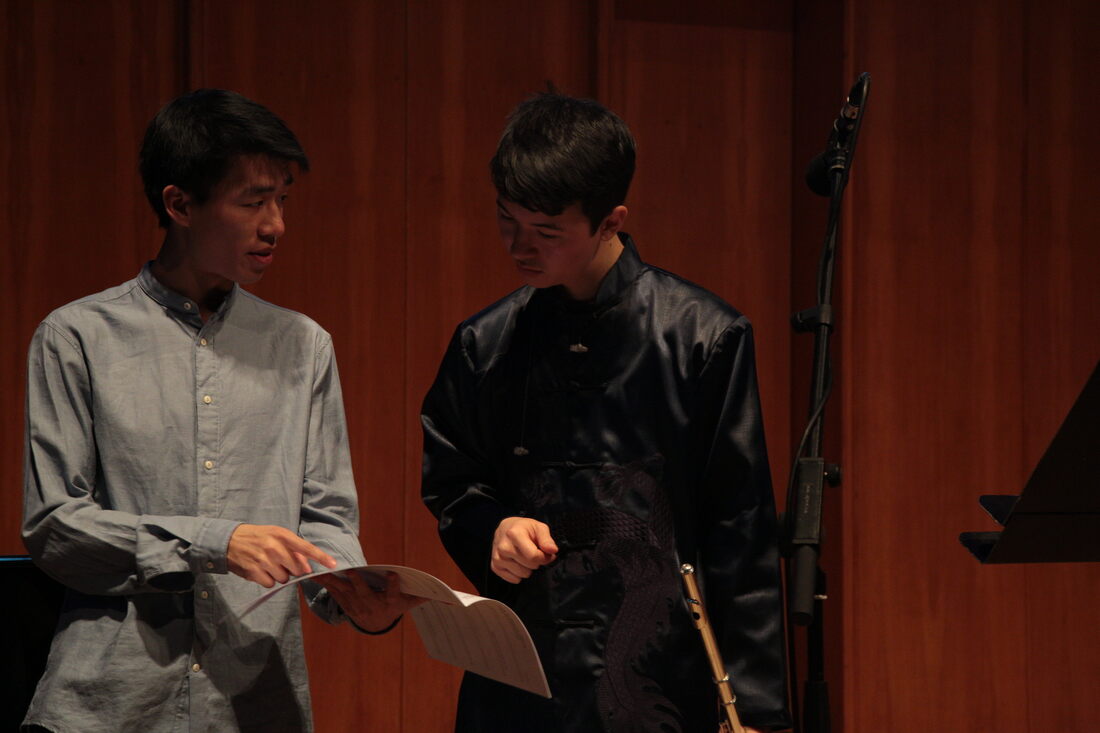
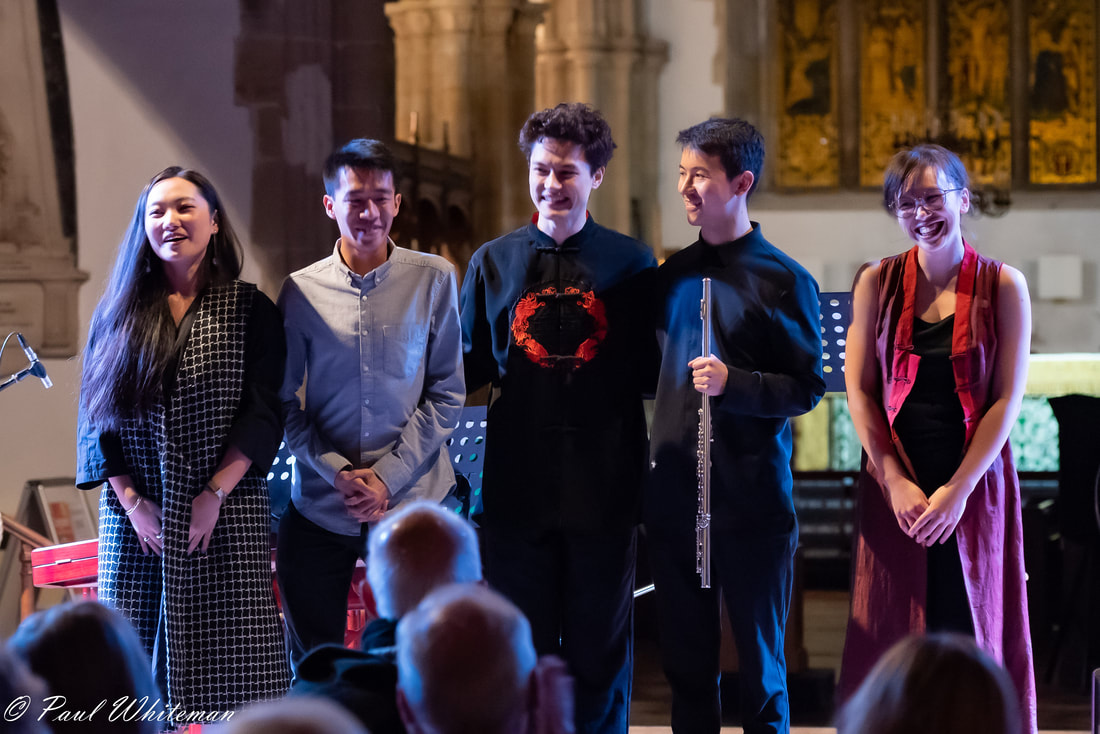
 RSS Feed
RSS Feed